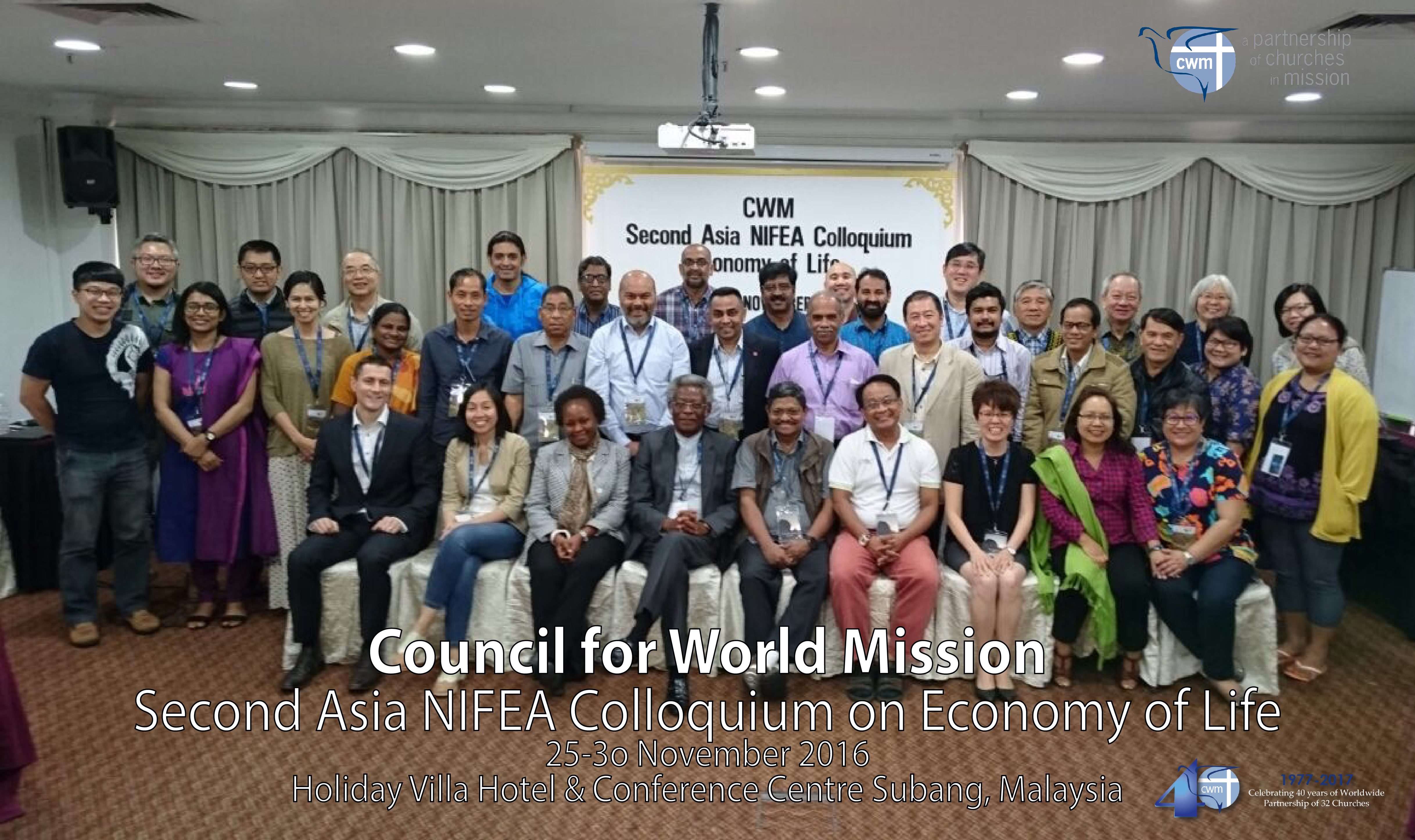Participants from the CWM Asia regions met in Kuala Lumpur, Malaysia from 25-30 November 2016 for the second New International Financial and Economic Architecture (NIFEA) colloquium on the economy of life. They continued discussions on and analyses of the challenges of poverty, inequality and ecological destruction that began at the first Asia NIFEA Colloquium which was held in Singapore from 11-16, October 2015.
The colloquium received encouraging testimonies and reports from CWM member churches in the East and South Asia regions responding to challenges of poverty, inequality and ecological destruction that are prevalent in the region. The participants toured to Malaysian CARE, a local NGO, that is facilitated the churches to witness first hand an example of a church-based response to social and economic challenges in the country. The participants reflected on, and affirmed the role of churches in responding to socio-political challenges. They acknowledged the significance of ecumenical advocacy as a strategy for work on the economy of life, towards ultimate eradication of poverty and inequality, and care for creation. The structural information intended to address these problems requires the determination of churches to work ecumenically through the Fullness of Life Movement (FLM). The CWM member-churches affirmed the need to work together ecumenically. The times of worship, prayer and liturgical sharing, during the colloquium provided an opportunity to discern together and to commit to common action. The call to common action was echoed by the Holy Scriptures and contextualised by the participants’ stories; further emphasising that missional engagement that affirms life responds concretely to felt needs.
CWM lauds the East and South Asia member-churches and church leaders who took the initiative to engage with and act concretely on the NIFEA framework of action that was issued at the 2015 colloquium in Singapore. There has been noticeable progress among member-churches’ response towards poverty eradication, inequality and ecological conservation.
The Malaysia colloquium achieved the following:
- Biblical expositions, touching on issues of poverty eradication, investment, advocacy and ecological justice, were a central feature. Bible Studies and lectures applied contextual and transformative lenses to inform and challenge understanding and interpretation of the Bible, thereby presenting alternatives that emphasise the economy of life.
- The understanding of poverty levels in the regions was raised. CWM Asia region member-churches mutually challenged one another to move from the welfare approach (where many churches are) towards a transformative approach. The latter was held up as a tool for systematically dealing with poverty in their respective contexts.
- Ecological injustice which remains a great challenge in many Asian countries was a raised as a concern that can be addressed when churches work ecumenically as a Fullness of Life Movement (FLM).
The participants recognized that Jesus Christ stands in solidarity with the vulnerable who are on the periphery of our societies (Matthew 25:31-45). They re-affirmed God’s calling for the Church to identify with those who suffer due to unjust economic systems. The colloquium raised awareness of the churches’ need of God’s grace and each other’s prayerful support and mutual action directed at total transformation towards the fullness of life for all of God’s creation. In response to the call for the economy of life for all, CWM East and South Asia member-churches declared their commitment towards holistic engagement with and mutual actions towards the social, economic, political and ecological challenges specific to the region.


